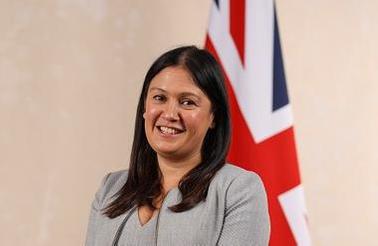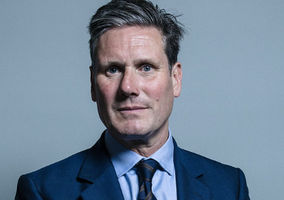Keir Starmer has appointed former Labour shadow charities minister Lisa Nandy as culture secretary in his first cabinet as prime minister, which has been described as having the “strongest charity sector background in modern history”.
Nandy, who was shadow international development minister prior to this year’s general election, said she was “thrilled” to lead the Department for Culture, Media and Sport (DCMS).
The Civil Society and Youth Directorate was part of DCMS prior to the election but the department has yet to confirm its portfolio for this parliament.
Nandy said: “As culture secretary, I will do everything I can to harness the limitless potential of the extraordinary people in these amazing sectors to drive economic growth, unlock opportunities for everyone and change lives for the better.
“The hard work begins today.”
Neil Heslop, chief executive of the Charities Aid Foundation, said: “With considerable experience of working in frontline charities, the new secretary of state will recognise the sector’s expertise in serving communities and delivering social impact.
“We look forward to working in partnership with the department to make sure the civil society sector thrives in the coming years.”
Sarah Elliott, CEO of NCVO, said: “With Labour’s promise at the start of the year to reset the relationship between civil society and government and a cabinet now made up of ministers with charity sector experience, the scene is set for greater collaboration from day one.
“It’s vital the new government sticks to this promise to unlock the potential for growth, stronger communities and a fairer society for all. We look forward to being part of that journey and are clear that the charity sector stands willing and ready to work with you.”
Elsewhere, Anneliese Dodds has been appointed as minister for international development.
Romilly Greenhill, chief executive of NGO umbrella body Bond, said her organisation hopes to see aid spending return to 0.7% of the UK's Gross National Income under Dodds’s leadership.
“We hope in time to also see an independent department responsible for, and with autonomy over, the UK aid budget,” she said.
“We look forward to working with her to pursue an approach to international development based on genuine respect and partnership with lower-middle income countries.”
Eight cabinet members with charity sector experience
Eight members of Starmer’s cabinet have previously worked in the charity sector, according to an analysis by Pro Bono Economics (PBE), the highest number since Gordon Brown was prime minister.
The cabinet also includes four former civil society ministers or shadows including Nandy, energy secretary Ed Miliband, environment secretary Steve Reed and leader of the House of Lords Baroness Smith.
PBE director of policy and communications Nicole Sykes and senior research and policy analyst Jack Larkham wrote that Starmer’s cabinet has “a greater depth and breadth of charity experience than Brown’s did”.
They note that work and pensions secretary Liz Kendall’s experience at the Maternity Alliance, Nandy’s time at Centrepoint and the Children’s Society and health secretary Wes Streeting’s previous employment by the Helena Kennedy Foundation and Stonewall.
Meanwhile, science secretary Peter Kyle spent five years as deputy chief executive of sector membership body ACEVO.
‘An opportunity to grasp’
Sykes and Larkham wrote: “Having eight members of the cabinet with first-hand knowledge of the challenges of charity commissioning, the burden of grant applications, the uncertainty of charity staffing, and the imperfect landscape of charity governance creates a convenient shortcut to delivering that change.
“These ministers don’t need briefing on these issues: they’ve lived them. So organisations trying to influence can jump straight to the change that’s needed – an efficiency that’s likely to be welcome at this time of immense pressure.
“Having a cabinet with the strongest charity sector background in modern history is not a magical solution to the sector’s woes, but it could be an opportunity to grasp.”












